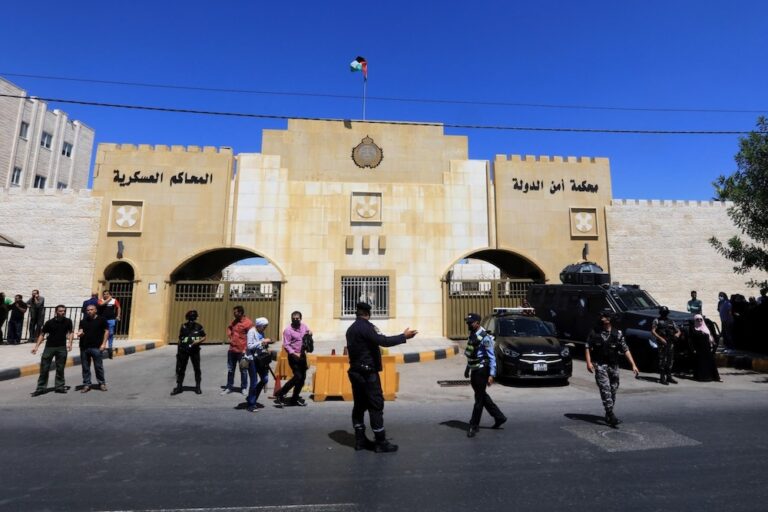In a media interview, Dr. Ahmad al-Oweidi al-‘Abbadi said that “[t]he republican system is coming here to Jordan, and I do not believe it will take more than two years, at most” to establish.
(Human Rights Watch/IFEX) – Beirut, February 26, 2012 – The criminal charges against a man who has peacefully advocated making Jordan a republic violate freedom of expression and should be dropped immediately, Human Rights Watch said today. Jordan’s military prosecutor at the State Security Court ordered the detention of and brought criminal charges against Dr. Ahmad al-Oweidi al-‘Abbadi, a prominent opponent of King Abdullah, because al-‘Abbadi peacefully argued in a media interview for making Jordan a republic rather than a monarchy.
In a separate incident reflecting an assault on free expression, an unidentified assailant stabbed Inas Musallam, a student, apparently in response to an article she wrote that was critical of a royal prince.
“Official prosecutions for peaceful expression of political views create a climate of intolerance, in which people may think it’s ok to assault someone who writes something they don’t like,” said Christoph Wilcke, senior Middle East researcher at Human Rights Watch. “The prosecutor should drop charges against Ahmad al-‘Abbadi and instead focus on finding Inas Musallam’s attacker.”
In an interview on January 18, 2012, with the Internet-based JordanDays media organization, which interviews prominent people and broadcasts parliamentary sessions and news conferences, al-‘Abbadi said that “[t]he republican system is coming here to Jordan, and I do not believe it will take more than two years, at most” to establish.
Al-‘Abbadi went on to describe the monarchy as an outmoded form of government not representing the wishes of the people. He did not advocate violence or specify how a change from the monarchy to a republic was to be achieved, although he predicted that retired military officials would carry out a “revolution.”
The prosecutor has charged al-‘Abbadi with “subverting the system of government in the kingdom or inciting to resist it,” a crime that article 149 of Jordan’s penal code punishes with hard labor. On January 24 the prosecutor at the military-dominated State Security Court issued a summons for Al-‘Abbadi. When he did not respond, he was arrested on February 2 and remains in detention pending a trial, ‘Umar al-‘Ulwan, his lawyer, told Human Rights Watch.
Al-‘Abbadi leads the Jordan National Movement, an opposition group that criticizes chiefly what its members see as corruption in the royal family. He served two years in prison in 2007 and 2008 for “undermin[ing] the psychology of the [Islamic] nation” following a public letter he wrote that authorities deemed defamatory to the queen.
(. . .)


